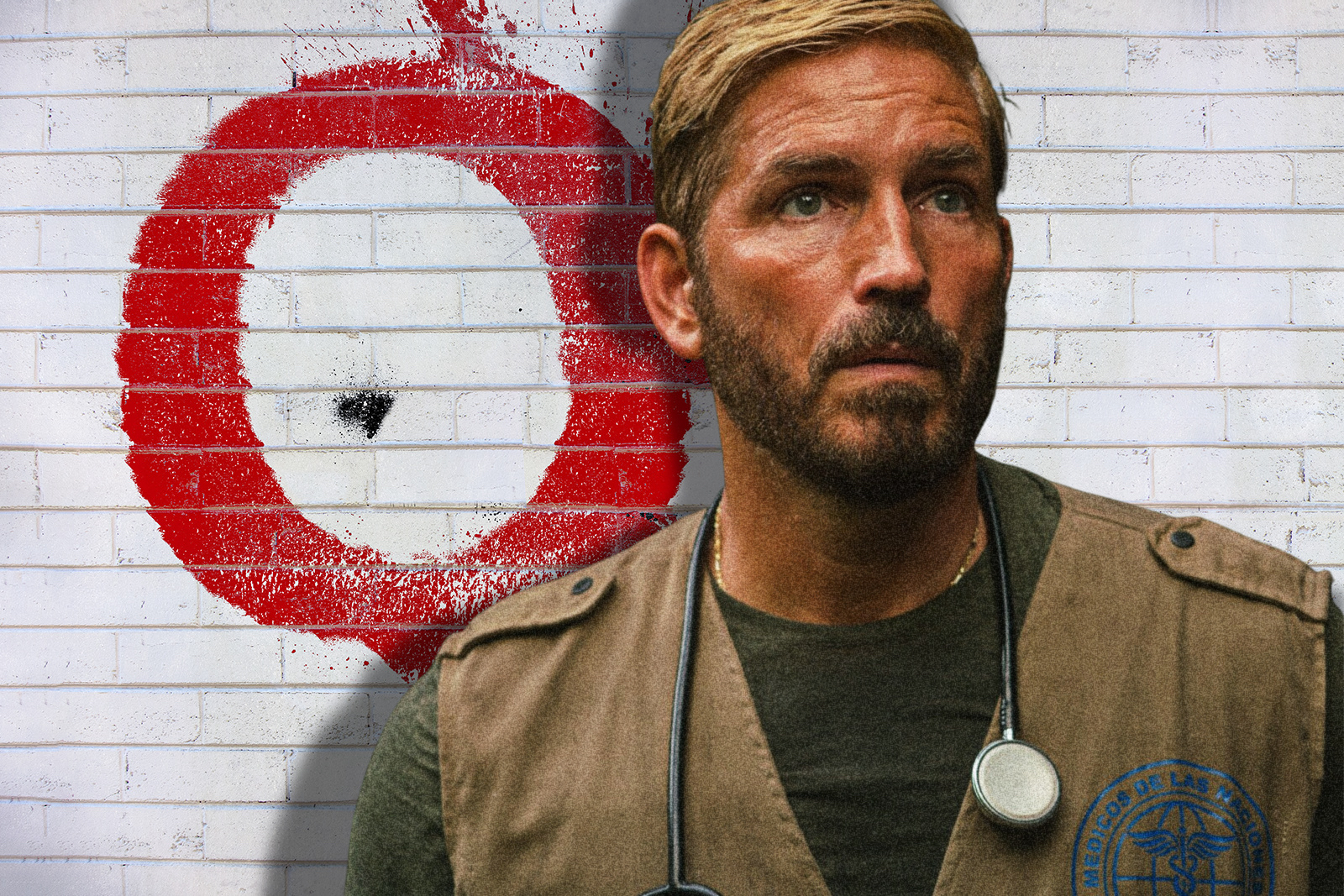
QAnon Has Gone Mainstream with ‘Sound of Freedom’
The film Sound of Freedom, released on July 4, has been causing ripples of controversy. The film stars Jim Caviezel as the contentious figure, Tim Ballard, a man infamous for his links to the far-right QAnon movement. Having ascended to the box office’s top spot, the film’s influence is undeniably strong. When I attended a screening, the theater was nearly filled to capacity, with my friend – notably, the only Black woman present – and myself compelled to sit apart. As a freelance journalist, it was an isolated role in a sea of enthusiastic viewers.
The most conspicuous aspect of Sound of Freedom is Caviezel’s portrayal of Ballard, serving as a quintessential white savior figure. Amid the film’s Colombian setting, the protagonists are predominantly Hispanic or Black, including the innocent child victims of sex trafficking, while Ballard (Caviezel) stands out as a white American.
The film opens in Honduras, introducing a destitute father of two. His children, Miguel and Rocío, are lured by a former beauty queen, Gisselle, who promises a glittering career in modeling. The father leaves his children at the “modeling agency” but returns to an eerie emptiness. Meanwhile, across the border in California, Ballard goes undercover as a pedophile to extract the whereabouts of Miguel and Rocío from a captured offender.
After rescuing Miguel and leaving his Department of Defense job, Ballard sets up an anti-sex trafficking organization, Operation Underground Railroad. He then heads to Colombia, where, with the help of Vampiro (Bill Camp), a reformed cartel accountant, a large-scale sting operation leads to the arrest of Gisselle and several other trafficking suspects. However, Rocío’s location remains a mystery until an interrogation reveals she’s enslaved in the jungle by FARC rebels, forced into drug production for their insurgency against the Colombian government. Venturing into hostile territory, Ballard, and an associate, disguised as medics, successfully liberate Rocío, and reunite her with her family.
Yet, numerous issues underpin the film’s plot. Caviezel’s white savior role resonates troublingly with past characters like Brad Pitt’s character in 12 Years a Slave, Sam Worthington’s character in Avatar, or Leonardo DiCaprio’s character in Blood Diamond. Worse, the film embellishes Ballard’s real-life story and his organization, which, according to a 2020 Vice article, has a record of overstating its role in rescuing victims of child sex trafficking, blurring the line between trafficking and consensual sex work.
The film also perpetuates a damaging narrative by implying that non-white foreigners are the primary orchestrators of child sex trafficking. The reality is that offenders come from various racial and national backgrounds. The discrepancy is clear when you look at examples like Andrew Tate, an American charged with sex trafficking and rape in Romania, who doesn’t fit the stereotypical image portrayed in the film. Moreover, my Twitter feed is rife with reports of white evangelical Christian leaders implicated in sex-related crimes.
Of even greater concern are the connections between Caviezel and Ballard and the QAnon movement. Caviezel openly supports the movement, which promulgates the belief that “the world is run by a secret cabal of pedophiles who worship Satan and are plotting against President Trump.”
Where the theory really veers into crazy land, and this has been parodied by South Park and others, QAnon adherents like Michael Flynn, Caviezel, and Ballard “falsely claim the cabal is abducting children to kill them and harvest their blood for a chemical known as adrenochrome, which is used to extend their lives. This belief is a centuries-old antisemitic trope based on the falsehood of Blood Libel, in which a cabal of Jews kidnaps and murders Christian children. QAnon’s claims of pedophilia and one of its latest campaigns, #SaveTheChildren/#SaveOurChildren, relies on a slogan that has been used for decades as an anti-LGBTQ dog whistle to paint LGBTQ people as a danger to children, usually through pedophilia.”
Although Ballard denies knowledge of QAnon, his claims of uncovering a West African “baby factory” for organ harvesting and satanic rituals eerily reflect QAnon’s rhetoric.
The Sound of Freedom is replete with problematic elements that I fear could fuel support for a Trump presidency resurgence. From Caviezel’s white savior portrayal of Ballard and the overstated depiction of Operation Underground Railroad to the movie’s disturbing alignment with QAnon beliefs, these issues are undeniable. Films like Sound of Freedom risk normalizing the QAnon movement and its beliefs. With nearly a quarter of Republicans believing some tenants of the conspiracy theory, it, unfortunately, might be too late to keep the far-right movement from going mainstream.
